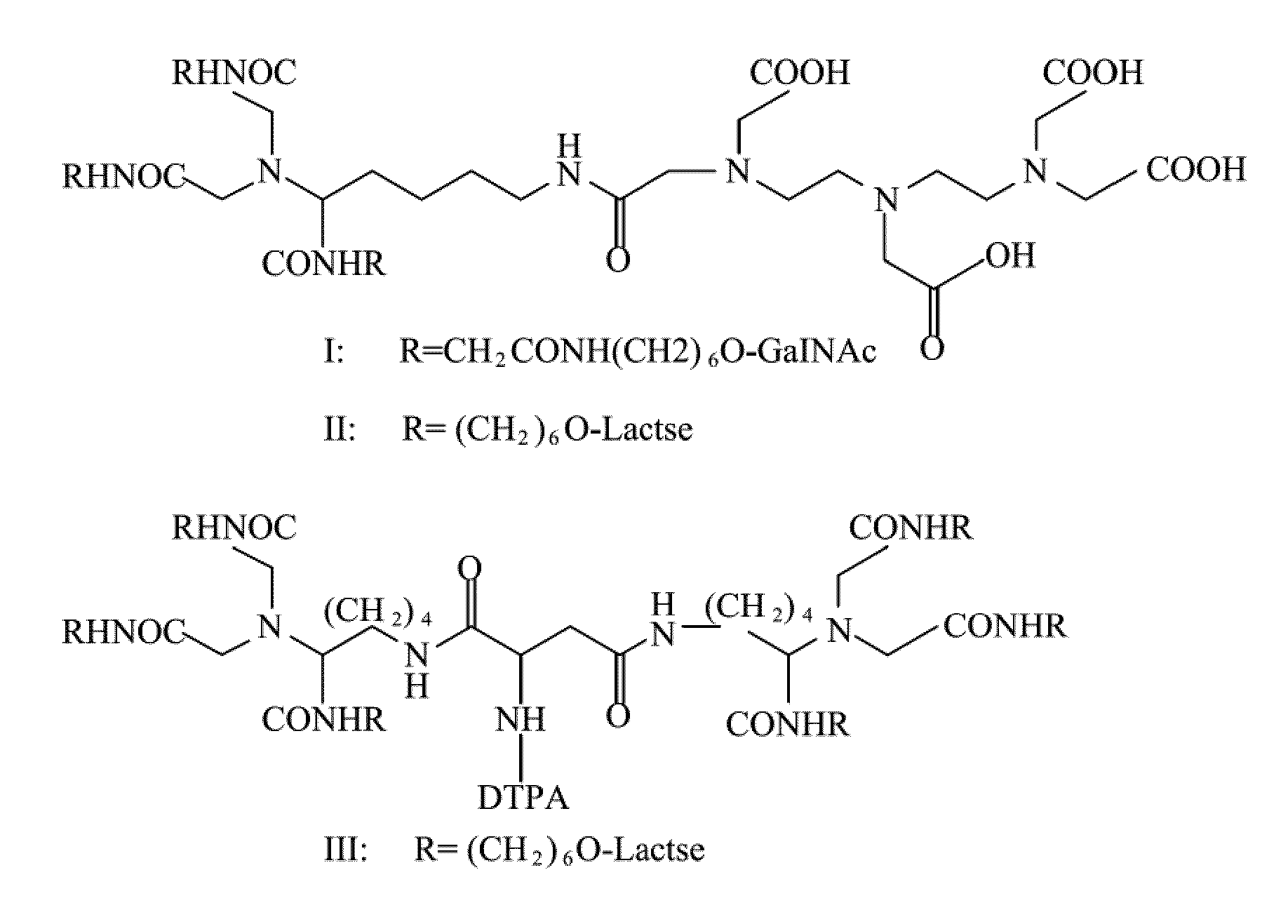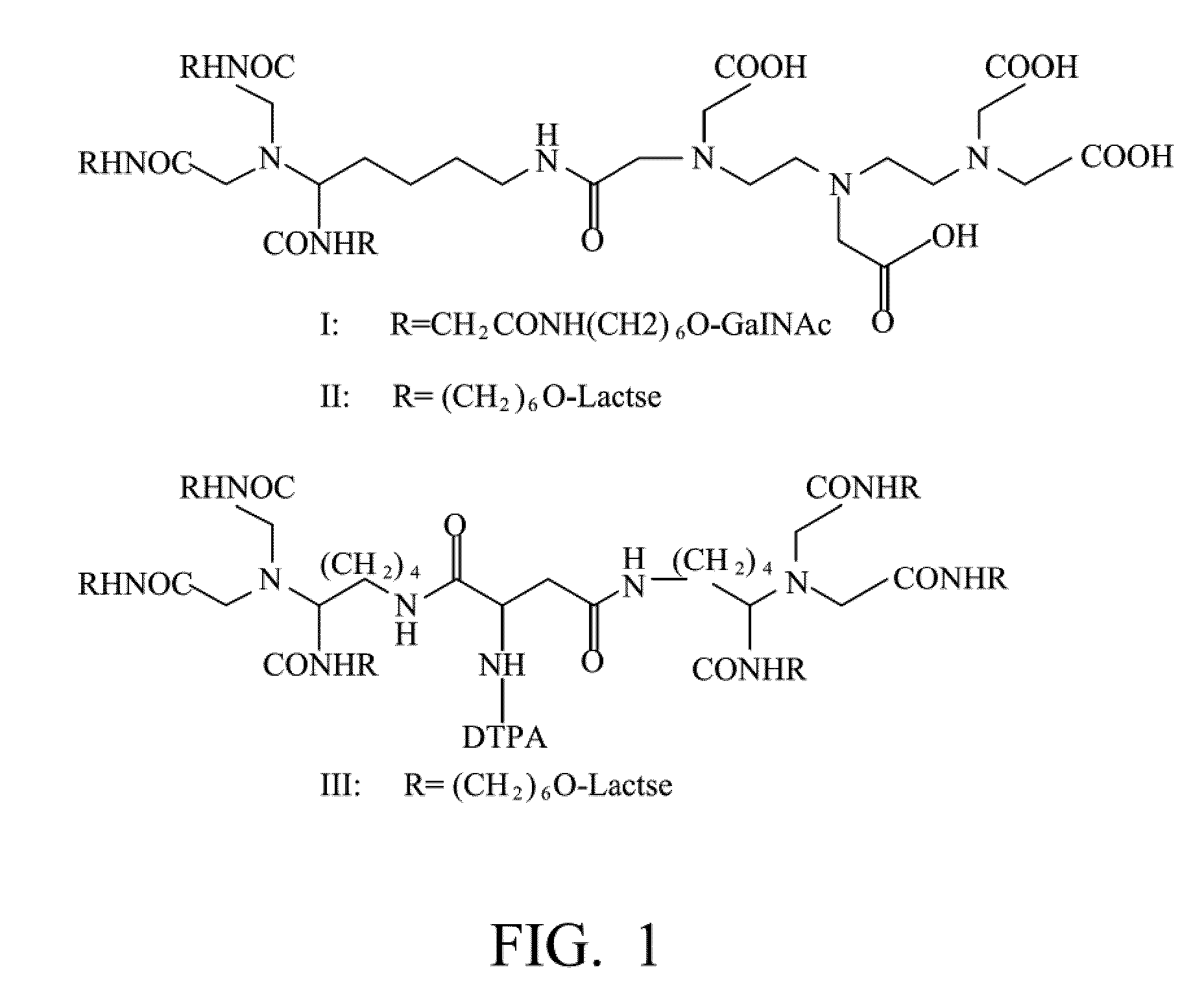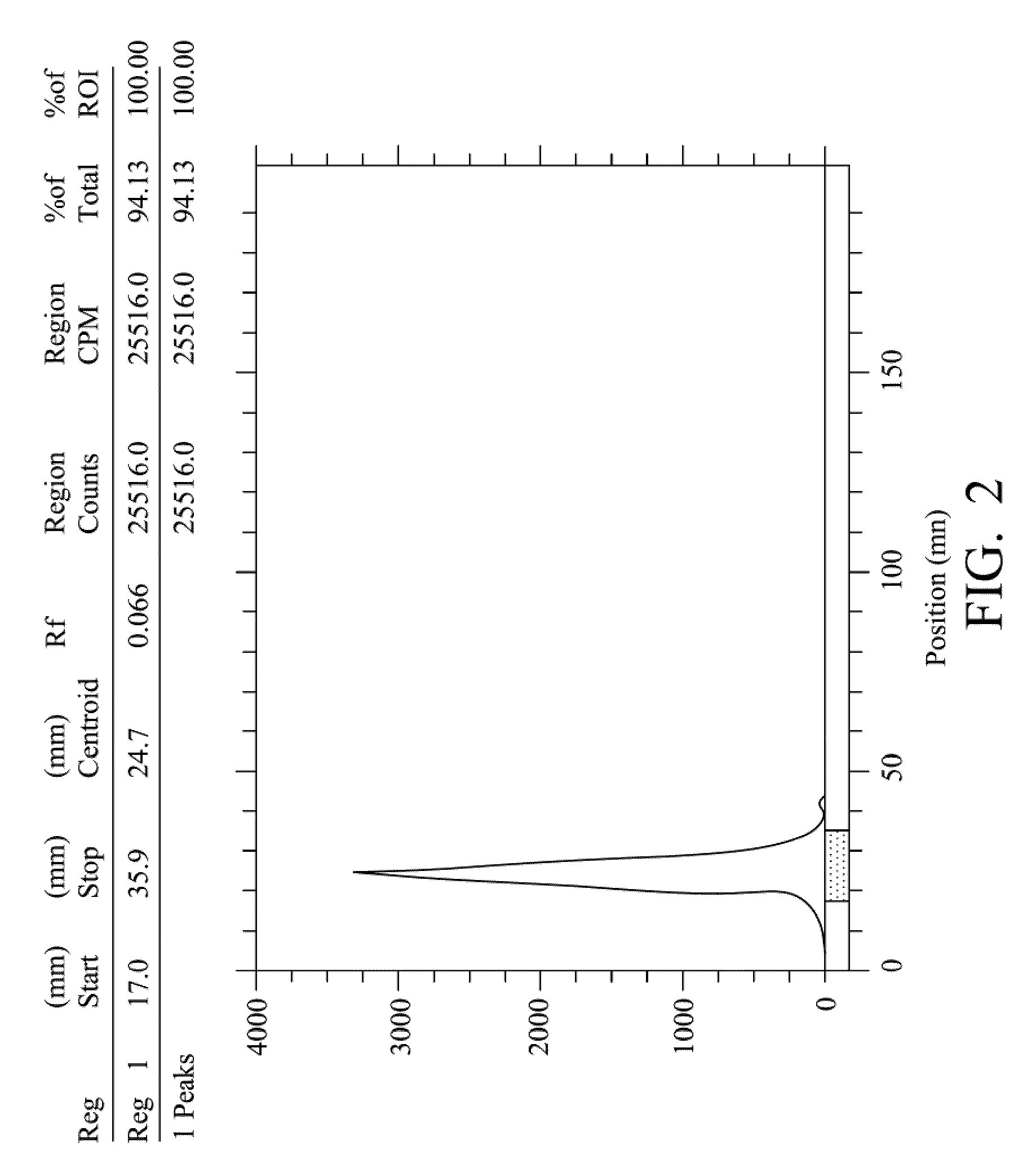Quantification method for remaining liver function and novel liver receptor imaging agent
a liver receptor and quantitative evaluation technology, applied in the direction of group 3/13 element organic compounds, peptide/protein ingredients, therapy, etc., can solve the problems of not having a systematic quantitative evaluation tool that is widely accepted, difficult to know the position and the number of saccharide groups and dtpa, etc., to achieve the effect of enhancing the accuracy of the determination of liver transplantation
- Summary
- Abstract
- Description
- Claims
- Application Information
AI Technical Summary
Benefits of technology
Problems solved by technology
Method used
Image
Examples
Embodiment Construction
[0033]The features and implementation of the present invention are described in detail with preferred embodiments below.
[0034]I Design of Novel Liver Targeting Drug
[0035]According to the present invention, c-benzyloxycarbonyl-α-dicarboxylmethyl-L-lysine (Z-DCM-Lys) is used as a new basic structure to be connected to aminohexyl β-GalNAc (ah-GalNAc), glycyl-aminohexyl β-GalNAc (Gah-GalNAc), or aminohexyl Lac (ah-Lac) in series, so as to form a three-chain glycopeptide. As the binding strength of the lactose chain and the ASGPR is not as strong as that of the galactosamine chain, when the lactose chain is connected in series, two molecules of three-chain lactoside will be further connected together in series through aspartic acid or glutamic acid. For example, two molecules of ε-Z-α-DCM-Lys (ah-Lac)3 is further connected together through aminohexanoyl aspartic acid (AHA-Asp) in series to form AHA-Asp[DCM-Lys(ah-Lac)3]2 (hereafter simply referred to as hexa-Lactoside). The free amino en...
PUM
| Property | Measurement | Unit |
|---|---|---|
| pH | aaaaa | aaaaa |
| pH | aaaaa | aaaaa |
| pH | aaaaa | aaaaa |
Abstract
Description
Claims
Application Information
 Login to View More
Login to View More - R&D
- Intellectual Property
- Life Sciences
- Materials
- Tech Scout
- Unparalleled Data Quality
- Higher Quality Content
- 60% Fewer Hallucinations
Browse by: Latest US Patents, China's latest patents, Technical Efficacy Thesaurus, Application Domain, Technology Topic, Popular Technical Reports.
© 2025 PatSnap. All rights reserved.Legal|Privacy policy|Modern Slavery Act Transparency Statement|Sitemap|About US| Contact US: help@patsnap.com



